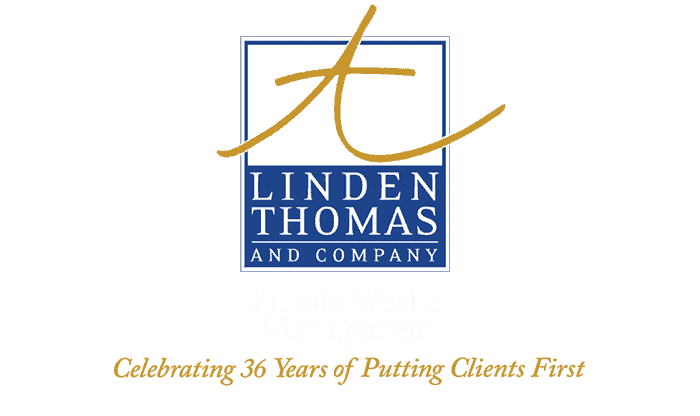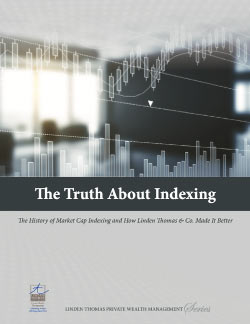Short Story About Indexing
Indexing Made Better
Several years ago, one of our clients, who had index funds held at another investment firm, pointed out that it seems to have not recovered very well after the down markets of 2008. Puzzled by its slow recovery compared to his institutional portfolio, he asked me and the team at Linden Thomas & Company to research his concerns. After several weeks of doing a deep dive into how market-cap indexes are built and pooled, we were shocked by what we found. We discovered there were many flaws hidden deep in index funds and pooled ownership.
What we found is, while index funds have become very popular because of branding and access, unfortunately shortfalls exist which impact investor results. So, we decided to put our research insight to good use and build an efficient Earnings-Focused Institutional Index. This removed the shortfalls we found in traditional index funds.
Shortfalls of pooled index funds:
- Investors don’t own stocks directly.
- The investor has no control of holdings, taxes, or gifting.
- The investor cannot track stocks directly.
- The investor cannot see the real impact of trading costs.
- Herding, where small investors moving in and out of the fund cannot be controlled, hurts results because of trading costs and increased taxes.
- When stocks are replaced because they fall below market cap (size) requirements, investors are often negatively impacted because the “damage is already done".
- Stocks are chosen for size, not always the quality of earnings.
- Weightings can increase as sector growth takes place.
- Pass-through taxes can be painful—especially if you didn’t make money—or worse, your fund value is down.
Once we did our research on the items that impact results, our team developed a better earnings-focused index which gives each of our clients an index discipline with an institutional approach. Our investors own holdings directly.
Enhancements of the Linden Thomas & Company Earnings-Focused Index:
- Investors own each stock directly for total control.
- Taxes and gifting are controlled by an investor, not the fund company
- Total transparency of holdings through direct ownership.
- No hidden trading costs, unlike pooled mutual funds.
- No small investor herding impacts like in pooled mutual funds and ETFs.
- Earnings quality focus versus market cap (size) focus. Companies are selected because of earnings quality versus size requirements.
- Our five-factor earnings screens identify high quality companies.
- Enhanced sector controls prevent concentration.
Once our first index was built and the earnings-quality screens were applied, we hired a research firm to back test our findings. We found investor results over time were enhanced significantly.

